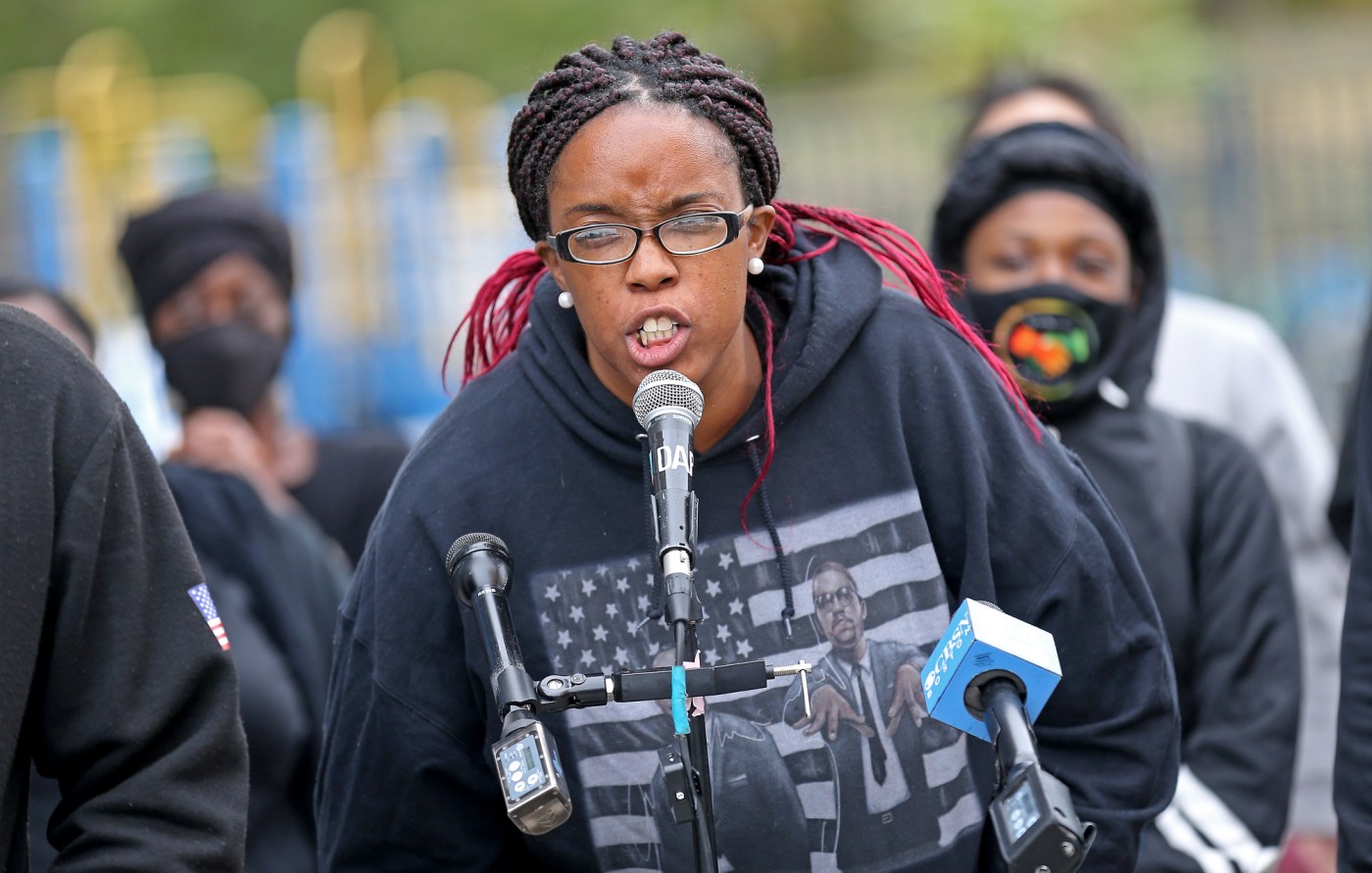
‘Serious ethical violations’: Former Cannon-Grant attorney suspended after ‘failure’ to meet responsibilities
Accused Boston BLM charity fraudster Monica Cannon-Grant’s last private attorney has been temporarily suspended from practicing law in the state of Massachusetts.
The Massachusetts Supreme Judicial Court issued an order of immediate temporary suspension against attorney Christopher Malcolm, a judge announced in a recent filing in Cannon-Grant’s case docket.
Malcolm’s suspension, which was ordered in November, is “pending further order from the SJC” and subject to “further proceedings before the Board of Bar Overseers,” U.S. District Court Judge Indira Talwani’s announcement summarized.
The suspension, according to the SJC ruling, means Malcolm must withdraw as counsel or as fiduciary from every pending case or current client and “provide notice to counsel for all parties (or, in the absence of counsel, the parties) in pending matters that the lawyer has been temporarily suspended and, as a consequence, is disqualified from acting as a lawyer after the effective date of the temporary suspension.”
Malcolm’s suspension comes from four “serious ethical violations” in a separate federal case, according to the referral for disciplinary action filed by U.S. District Court Judge Leo T. Sorokin in that case’s docket.
Specifically, Sorokin said in the 27-page October referral that he found it “reasonably plausible” that Malcolm committed violations of four Massachusetts Rules of Professional Conduct for attorneys: “regarding conflicts of interest,” “breach of the duty of confidentiality,” “acceptance of the payment of client fees from a third party,” and “breach of the duty of candor to the tribunal.”
In the case in question, U.S. v. Harry Tam et al., which involves alleged meth trafficking, Malcolm represented Tam but had previously represented two co-defendants when the case was at the state level but had not disclosed that information in the federal case, according to the referral. When prosecutors raised the issue, hearings were held and Malcolm was disqualified from the case.
The lengthy document explains this was a serious matter because the co-defendants in the case could be “materially adverse” and that any one of them might “pursue a defense that attempted to cast blame on the other.
“Such a defense would then create material adversity between Attorney Malcolm’s current and former clients, giving rise to a conflict of interest,” Sorokin wrote.
In addition to the conflict, Sorokin found Malcolm withheld information or provided false information to the court and prosecution and had a bizarre payment scheme in which one client paid for another’s legal fees.
In addition to these complaints, which formed the basis for the referral, Sorokin separately noted “with concern Attorney Malcolm’s recent behavior across his cases in this district” which “suggests a broader failure to attend to his responsibilities.”
In a bulleted list, Sorokin noted several instances in which Malcolm “failed continually to meet deadlines,” from client fee letters, to responses to orders, to changes of address and even court dates, which includes his absence in Cannon-Grant’s case on Dec. 15, 2023.
A note in the Cannon-Grant case docket for that date states, “Mr. Malcolm failed to appear despite notice and attempts to call and email during court.”
Malcolm did not respond to a request for comment from the Herald.
Malcolm was the third of now five attorneys who have defended Cannon-Grant against the 27-count federal indictment alleging serious fraud in the management of her nonprofit Violence in Boston.
“From 2017 to 2021, Cannon-Grant and [her late husband] Clark Grant, through VIB fundraising, solicited and received over a million dollars in donations and grants from individuals, charitable institutions, and other entities,” the indictment states, and across 52 pages alleges misuse of much of these funds, often to enrich themselves.
In all, Cannon-Grant is charged with three counts wire fraud conspiracy; one count conspiracy; one count mail fraud, aiding and abetting; 16 counts wire fraud, aiding and abetting; one count making false statements to a mortgage lending business, aiding and abetting; two counts filing false tax returns; two counts failure to file tax returns; and allegations of both wire and mail fraud forfeiture and mortgage fraud forfeiture.
The defendants also allegedly “misrepresented their actual household income to obtain rent relief funds that were intended to aid Boston residents who were facing housing insecurity” by bilking the city’s Office of Housing Stability, according to the charge. They “concealed” money in order to obtain rental assistance.
Related Articles
Federal judge dismisses outdoor dining lawsuit from North End restaurants
Martha’s Vineyard man gets 10 years in prison for bank robbery
Wuhan surgeon gets prison in America for steroid sale scheme
Fentanyl kingpin gets 22 years
5 charged with scheme to obtain driver’s licenses for illegal immigrants
This despite, as the indictment alleges, that Cannon-Grant was paying herself about $2,788 per week as CEO of VIB, netting $25,096 in 2020 and $170,092 in 2021 from the charity alone.
Cannon-Grant, arrested in March 2022, was first represented by private attorney Robert Goldstein, then by appointed attorney Keith Halpern starting in September 2022, and then went private again with Malcolm starting in February of 2023.
Cannon-Grant filed a sealed letter with the court on July 31 that is summarized on the docket as her “identifying concerns and legal issues” and requested an attorney appointment hearing for that August. “Taken together,” the note states, “the Court treats these as a motion to appoint new counsel.”
She was subsequently appointed two new attorneys, George Vien and Emma Notis-McConarty.
The next court date, a status conference, is scheduled for Feb. 19. The latest scheduled trial date is Oct. 14.
Supreme Judicial Court in Boston. (Nicolaus Czarnecki/Boston Herald)

